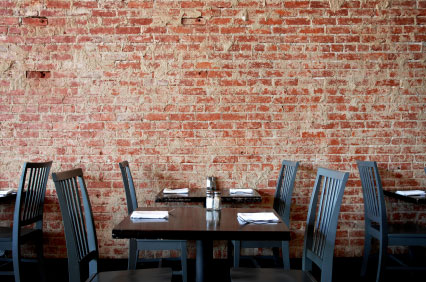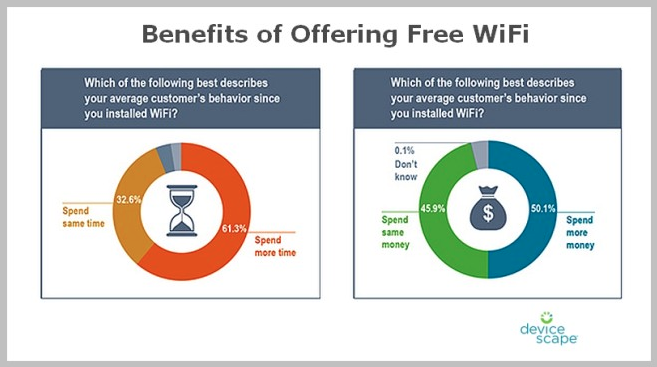The restaurant no show problem
Restaurant no shows have reached 4% in Australia according to a recent article that appeared in Hospitality Magazine. With restaurant profit margins sitting at between 3-5% it pays to have a plan in place to reduce this figure.
Here are some way your restaurant can reduce the amount no shows.
Here are some way your restaurant can reduce the amount no shows.
1. Forgo reservations
Clearly the best way to avoid restaurant no shows is to do away with reservations all together. Generally it is more popular restaurants with a number of sittings per evening that can do away reservations all together, it doesn't work for all restaurants. If your establishment doesn't have a high table turnover then you could consider a partial reservation system whereby you allow bookings at certain times of the day.
2. Implement a ticketing system
Offering tickets to a restaurant is one method that almost entirely eliminates restaurant no shows. Even if a party fails to show up, the restaurant has their money in advance.
When Dimmi spoke to Hospitality Magazine they pointed out that in most other service industries payment is required in advance. Why shouldn't restaurants be the same?
The system works similar to a cinema. You pay upfront for a set menu and then drinks are paid for on the night.
Some restaurants have even began to experiment with time-of-day pricing. Customers willing to eat earlier or later in the evening pay less than those wanting a table during the restaurants busy period. The advantage of this is that you even out demand across the day and during the week. You also know ahead of time how many diners you are expecting and can organise staffing arrangements accordingly.
The disadvantage though is that very few restaurants currently use this system and diners could baulk at having to pay for their meal upfront and decide on a competitor who doesn't require this.
When Dimmi spoke to Hospitality Magazine they pointed out that in most other service industries payment is required in advance. Why shouldn't restaurants be the same?
The system works similar to a cinema. You pay upfront for a set menu and then drinks are paid for on the night.
Some restaurants have even began to experiment with time-of-day pricing. Customers willing to eat earlier or later in the evening pay less than those wanting a table during the restaurants busy period. The advantage of this is that you even out demand across the day and during the week. You also know ahead of time how many diners you are expecting and can organise staffing arrangements accordingly.
The disadvantage though is that very few restaurants currently use this system and diners could baulk at having to pay for their meal upfront and decide on a competitor who doesn't require this.
3. Ask for a deposit
A method similar to the ticketing system is requiring commitment to a reservation upfront. This is done by holding a diner's credit card details on file. This system is what is already in place in the hotel industry. If the diner fails to turn up or cancels at the last minute then the restaurant has the right to charge a fee.
This method doesn't need to apply to all diners. Some restaurants only require commitment from large parties of say 6 or more. Others will decide not to charge a fee when the cancelled reservation can be filled by another party.
The advantage of the deposit system is that as well as reducing no shows it can improve profit margins, especially if the cancelled booking can be replaced by another diner.
The disadvantage though is that charging the fee is often easier said than done. If the fee is particular high, as it is with some fine-dining establishments, then diners can cancel their credit cards, block the restaurant from taking a fee or have insufficient funds for the payment to be processed.
It appears though that the threat of charging a fee is enough to discourage diners and reduce the number of no shows.
This method doesn't need to apply to all diners. Some restaurants only require commitment from large parties of say 6 or more. Others will decide not to charge a fee when the cancelled reservation can be filled by another party.
The advantage of the deposit system is that as well as reducing no shows it can improve profit margins, especially if the cancelled booking can be replaced by another diner.
The disadvantage though is that charging the fee is often easier said than done. If the fee is particular high, as it is with some fine-dining establishments, then diners can cancel their credit cards, block the restaurant from taking a fee or have insufficient funds for the payment to be processed.
It appears though that the threat of charging a fee is enough to discourage diners and reduce the number of no shows.
4. Confirm Bookings
Confirming bookings is a proven method to reduce restaurant no shows. Restaurant & Catering Magazine cites the example of the Heritage in Perth that was able to reduce its no shows by 80% by using technology to confirm bookings with diners. The establishment used SMS technology linked to their POS system to prompt diners to reconfirm their booking.
SMS technology linked to a POS system is not the only option. Using email and the phone can be just as effective.
One of the keys is to make it easy for diners to cancel their booking. If you implement a technology friendly solution then reservations can be cancelled when it's most convenient for the diner. It makes it easier for diners to do the right thing and can give you the chance to replace the booking.
SMS technology linked to a POS system is not the only option. Using email and the phone can be just as effective.
One of the keys is to make it easy for diners to cancel their booking. If you implement a technology friendly solution then reservations can be cancelled when it's most convenient for the diner. It makes it easier for diners to do the right thing and can give you the chance to replace the booking.
5. Have a policy
The National Restaurant Association recommends having a policy in place in the instant of a no show.
For example what is your reservation policy, do you charge a no show fee? What criteria must be met for this fee to be charged?
How long will you hold a table before it's given away? Most restaurants will hold a table for 15 minutes before seating another diner. If the guests calls to notify they will be late then some restaurants will hold the table longer.
How will you keep tack of diners that are no-shows? Often your online dining application or POS system will be able to record this data. Will you decide to ban diners who are consistent no-shows?
If you're going to have a no show policy then be sure to fulfil your end of the bargain. Most guests do turn up and they expect to be seated promptly.
For example what is your reservation policy, do you charge a no show fee? What criteria must be met for this fee to be charged?
How long will you hold a table before it's given away? Most restaurants will hold a table for 15 minutes before seating another diner. If the guests calls to notify they will be late then some restaurants will hold the table longer.
How will you keep tack of diners that are no-shows? Often your online dining application or POS system will be able to record this data. Will you decide to ban diners who are consistent no-shows?
If you're going to have a no show policy then be sure to fulfil your end of the bargain. Most guests do turn up and they expect to be seated promptly.






 RSS Feed
RSS Feed